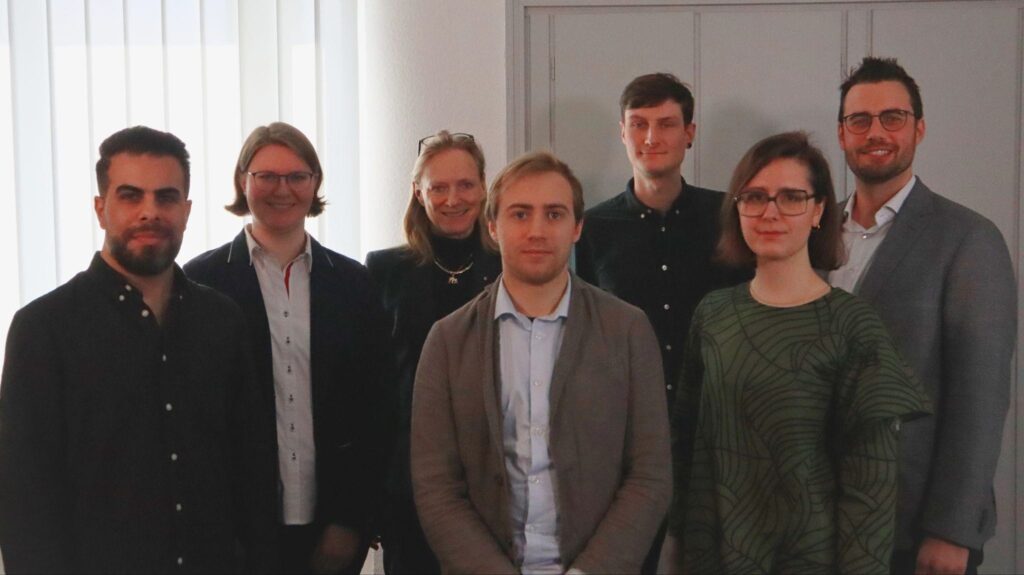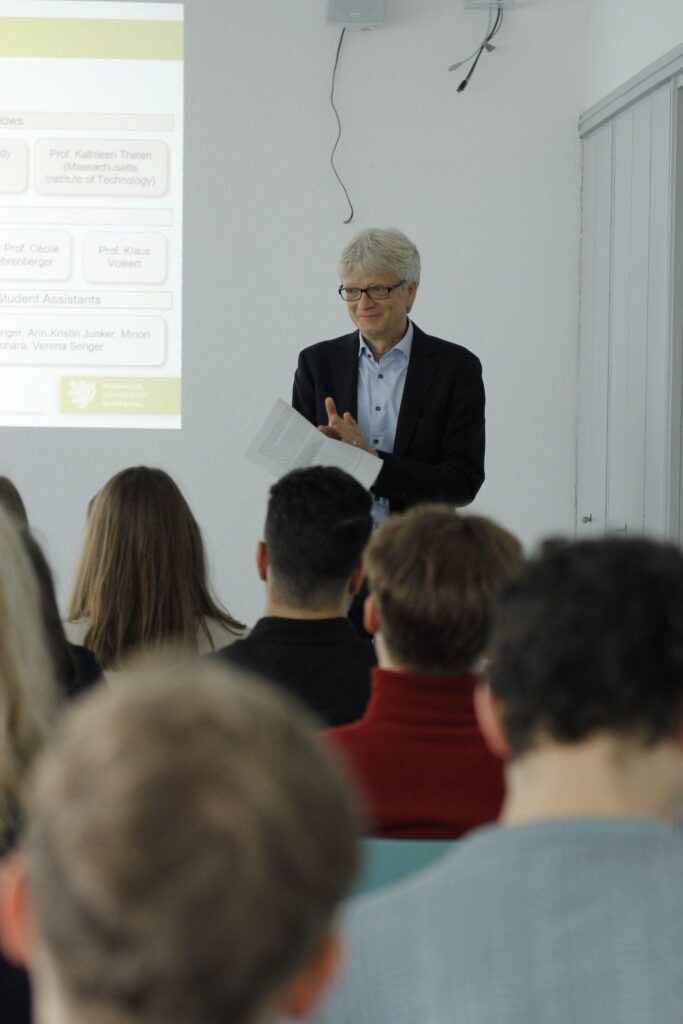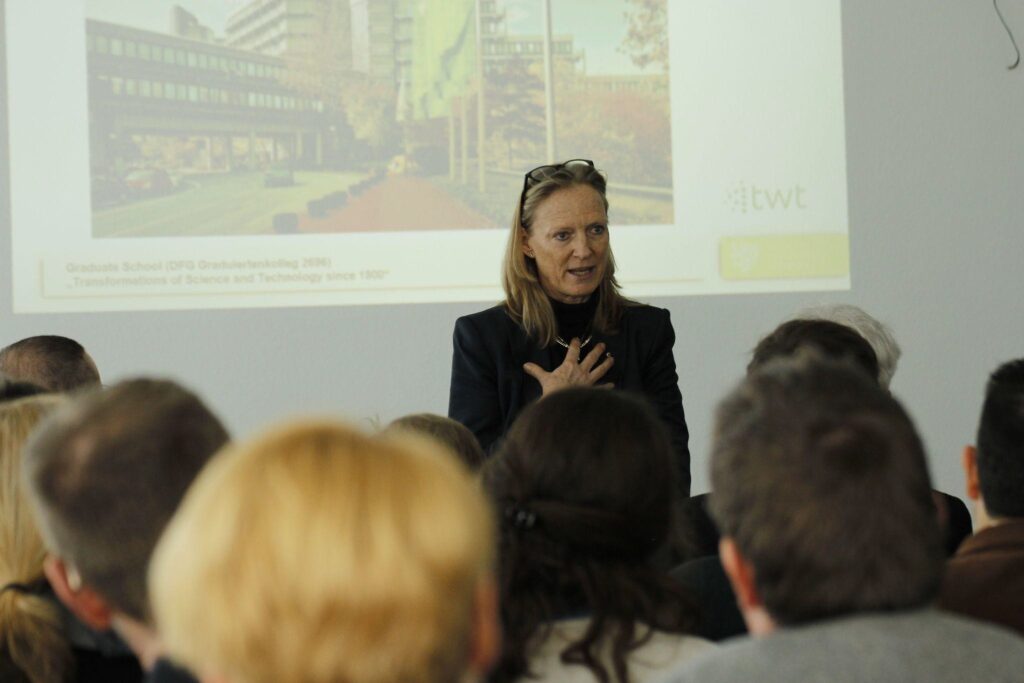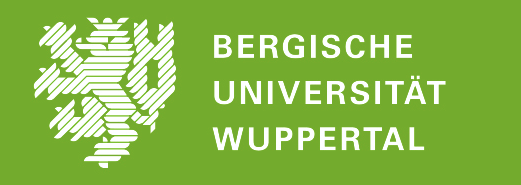March 15th is an important date for the IZWT as well as the entire Bergische Universität Wuppertal since it marks the official opening of the Research Training Group “GRK 2696 – Transformations of Science and Technology since 1800: Topics, Processes, Institutions”. Since the DFG’s creation of a Research Training Group is an important step in distinguishing Wuppertal as a research site, this celebration was more than just a formal act.

At the event, all eyes were on the six members of the first cohort. The PhDs have been working on their projects nonstop since October 2022 and enthusiastically welcomed the opportunity to officially present their research proposals, in which historical institutionalism plays a significant role, to a large audience. It was therefore a special pleasure to welcome the Chancellor Dr. Roland Kischkel, the Vice-Rector for Research and Digital Affairs Prof. Dr. Stefan F. Kirsch, and the Rector of our University, Prof. Dr. Birgitta Wolff, to the GRK’s new building. The opening statement was entrusted to Volker Remmert, the Spokesperson of the Research Training Group. He thanked everyone involved in making the project possible. The ceremony had an almost familiar atmosphere to it and the audience was excitedly listening to the six PhD students in the front: Sarwar Ahmed, Jasmin Dierkes, Jeremias Düring, Lucas Gautheron, Jan Nicolay and Nora Schierenbeck. Almost everyone who is either involved in the Research Training Group itself or feels particularly connected to it was able to accept the invitation, resulting in a rather crowded seminar room and lively conversations afterwards.

After a warm welcome and an introduction to the program from Jeremias Düring, the Research Training Group’s unique characteristics were presented by Nora Schierenbeck before each PhD student outlined their doctoral topic. All coming from a different academic background, there were a lot of disciplines covered in the individual proposals. While Sarwar Ahmed´s and Lucas Gautheron´s research topics are located in Philosophy of Science with a focus on Philosophy of Physics, Jeremias Düring´s project focuses especially on the intersection of Philosophy of Science and Philosophy of Economics. Jasmin Dierkes´ thesis thematizes the professionalization in the medical field with special focus on simulations from not only a sociological, but also a historical perspective. Located in the History of science is also Jan Nicolay´s project in which he investigates research vessels as a point of contact between science, technology and politics, as well as Nora Schierenbeck´s proposal that also includes a psychological perspective and therefore can be located in the history of psychiatry.
The research community has certain noteworthy disciplinary and conceptual features including its enormous disciplinary diversity and interdisciplinarity. Collaboration between several fields and interdisciplinary discussion are strongly encouraged. However, the impact of this kind of collaboration goes beyond new research perspectives. In the long-term, it promotes the transfer of knowledge inside the entire institution, strengthening the Bergische Universität Wuppertal as a center for science. The fact that the members in the GRK come from various academic communities and geographical locations results in a diversity of perspectives. The academic freedom to pursue one’s scientific curiosity and the supportive structure of the project enable a standard of high productivity and are complements to interdisciplinarity and internationality.

As a final word was Birgitta Wolff’s turn to address the visitors. In a rather personal speech, the rector reflected on her career and encouraged the six doctoral fellows for the challenges ahead while offering them all the support she could give. She also emphasized the advantages of a medium-sized university, which offers sufficient subject diversity for an institution such as the GRK, but does not become so confusing that the individual doctoral student runs the risk of getting lost. In particular, their contribution shows a specific form of collegiality that is not endangered by too strong hierarchies. Both correspond to the basic requirements of the Research Training Group, which aims to bring individual projects to the best possible conclusion through cooperation.
The formal part of the morning was followed by a buffet, which provided the opportunity for a closer exchange. Moreover, the future plans of the Research Training Group were discussed intensively: In September, the GRK will organize a large summer school under the leadership of Thomas Heinze to intensify interdisciplinary discussions. The two Mercator fellows, Cyrus Mody from Maastricht University and Hanne Anderson from the University of Copenhagen, will also participate in this summer school. Furthermore, the PhD students have international research visits and conferences coming up.
All in all, the start of the “GRK 2696 – Transformations of Science and Technology since 1800: Topics, Processes, Institutions” can be named successful, and there are many reasons to follow its work closely in the future.



